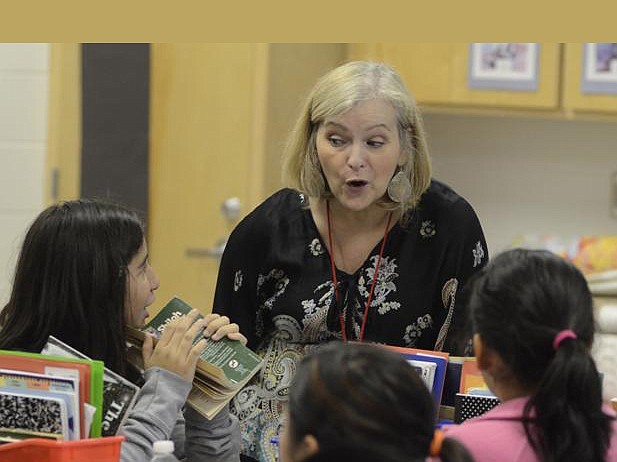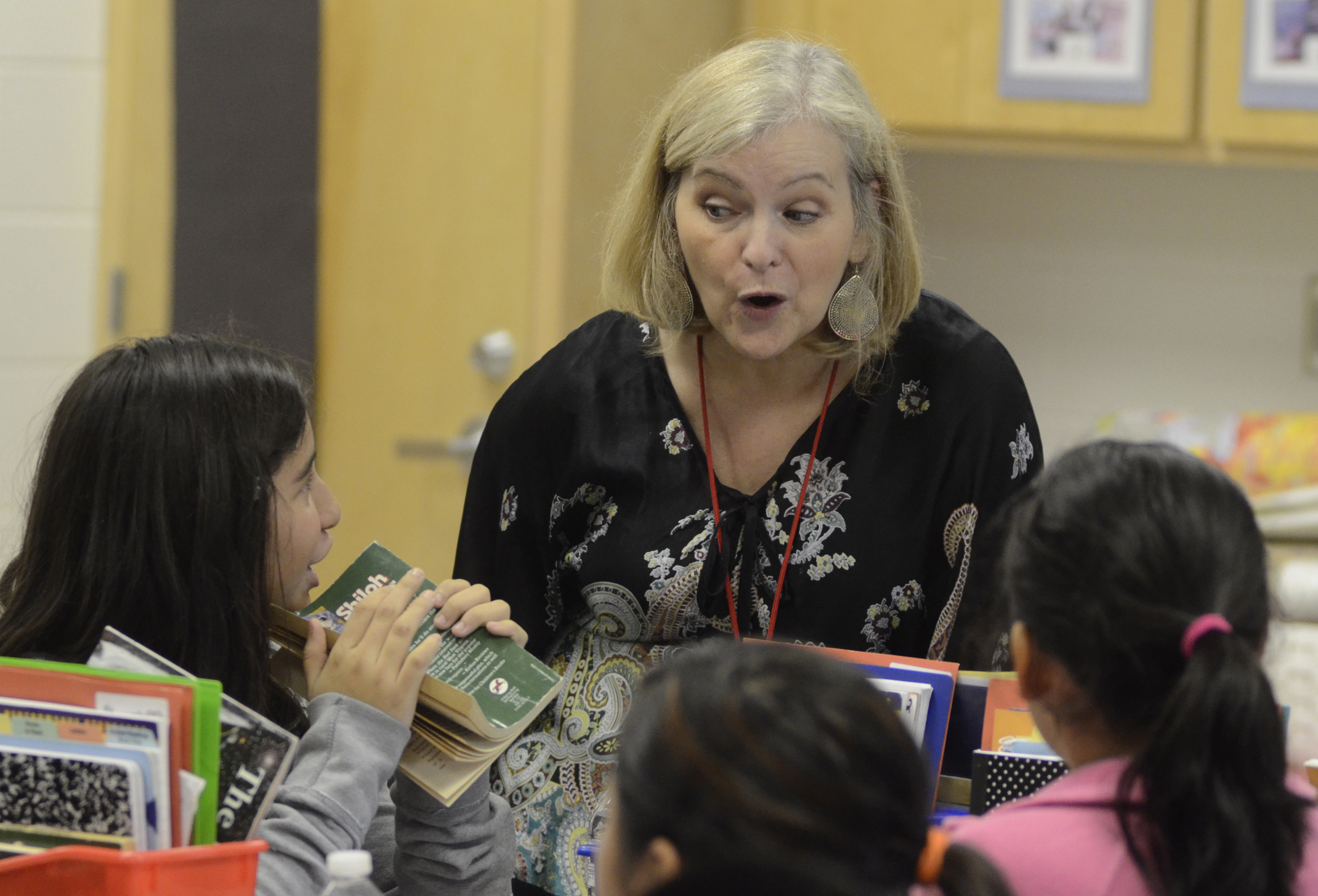DALTON, Ga. -- Soft music plays and children chatter in groups of four, their desks pushed into a square in Leslie Terry's third-grade class.
Terry, dressed in a casual striped shirt, jeans and sparkly flip-flops, walks around the room, prompting students that have questions. Diverse faces from Hispanic to Japanese students write what they like to do in their notebook.
Outside their classroom, flags from every nationality represented at Park Creek School hang from the ceiling throughout the hallways.
Park Creek -- the highest poverty-level school in the Dalton School district -- has multiple extra challenges such as some students learning English in class. But the elementary is an exception to the rule when it comes to high-poverty schools, scoring higher than most other schools in the district in each of the core subjects in third grade on the state's Criterion-Referenced Competency Tests.
The only school with higher improved scores was City Park School, which has the second highest level of poverty in the district.
While 90 percent of students participate in federal free and reduced-price lunch programs, a common indicator of family poverty, this hasn't hindered students at Park Creek from learning, said Principal Phil Jones.
Overall on the CRCTs, third-graders scored more than 10 percent higher than last year in core classes such as reading, language arts, math, social studies and science. Fourth-graders also scored higher in every subject except social studies and stayed nearly the same in reading, while fifth-graders dipped in several subjects but outperformed last year in social studies and English.
School officials say they believe the high test results are a mixture of treating every student like they have the same opportunities to learn, giving teachers more freedom to collaborate and thinking on a deeper level about how to reach each student and not just get them to pass a test.
"The CRCT scores are what the community thinks is important -- and it is -- but more important is what our teachers are doing everyday on a regular basis," Jones said.
Teachers face such challenges as students with a parent in jail, a parent sent out of the country, coming to school hungry or with no shoes, officials said, so they have learned to adapt, become more flexible.
For years, Jones said, many students came to school and had to be taught English -- along with all the other subjects -- complicating the teaching process. But the trend has been changing over the past few years, and more students now are second-generation in the U.S. and already speak English.
Some parents said they have noticed Park Creek teachers are more attentive and pick up on their child's habits quickly while giving regular updates -- both good and bad -- on their progress.
"I love the staff. They are always there for you," said Valiry Davila, who has a son in kindergarten and one in fifth grade.
State education officials said low-income schools typically perform the worst on tests, but there are exceptions.
"There are definitely standout schools in Georgia that are doing a great job serving poor children, and those children are performing at high levels," said Dorie Nolt, Department of Education spokeswoman.
Teachers in Dalton Public Schools are given a tremendous amount of freedom with a framework for educators to follow, said Assistant Superintendent Rhonda Hayes. One of the programs that has taken off in the district is the literacy program, which can be integrated into different subjects.
The district also spends more money per student then several other surrounding North Georgia districts -- nearly $8,290 per year per student, said district spokeswoman Pat Holloway. While funds help add unique programs -- such as buying iPads to replace social studies textbooks -- officials believe their programs are a contributing factor to student success.
Park Creek fifth-grade teacher Nina Johnson believes that, if her students can grasp how to critically think about writing, they will be better prepared for college and for life. Johnson, who also teaches writing at Chattanooga State Community College, sees where her students should be in the future.
"I have so many kids coming in that are lacking the skills that my fifth-graders have or are getting, and so I see where the gaps in their education were," Johnson said. "And I don't want the gaps to be here."

